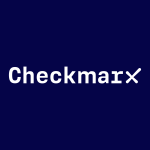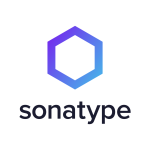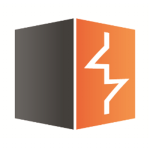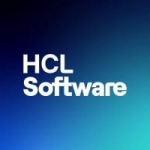We have a normal use case to build source code and our agenda and then try to deploy it. The deployment is not specifically automated, it is semi-automated. So it is normal. We create an artifact, try to build it, and then deploy it onto the application server. It's not fully automated.
At this point, I think the features are declining.
We like that we can create branches and then the branches can be reviewed and you can mesh those branches back. You can independently work with your own branch, you don't need to really control the core of other people.
There could be more features in GitLab, but we are as of now not using the full-fledged feature set.
Another good feature is the code review, which also helps us with peer review. It helps in giving part of the code and giving back whatever the branch that the developer is working on. It can then be merged once it is thoroughly reviewed. Those are certain things that I think are helpful from a developer's point of view. It provides or mandates quantitative code into the master.
We do reviews as I also work with some of the leadership teams. Leadership teams generally focus on statistics, metrics, or some sort of dashboard. They would like to have the ability to categorize these things. They would like to have a very high-level view. That would help. Someone who is not really a developer, but a leadership team. They are always interested in statistics or metrics features. That is something I would see imbedded into GitLab. That would help someone who is from the outside take a view and understand how qualitative the code is, because they cannot definitely dive in and look at the code, and they will not be able to understand all the details. At a high level, if they want to see and understand, at least they will have some confidence about how the projects are going on.
I have been using GitLab for two years.
The stability is good. I never had any issues. Stability-wise, I'm comfortable with it.
Scalability-wise it is very scalable as well. Based on the code volume, there is a scope for improvement. I never had issues with scalability.
Technical support depends on licensing. We haven't reached out that frequently because it is stable and we don't see any issues. I don't recall anything that we had any particular challenge that we had to reach out immediately to GitLab and then get the answer quicker at any point in time.
I wasn't here for the deployment but the deployment takes around 10 minutes.
Only a few aspects will take close to five minutes.
I would rate GitLab an eight out of ten.
GitLab provides some sort of static analysis part. That is what I understand, but I never tried it. I would like to see static analysis also embedded in GitLab. That would also help us. If there's something that it does internally by GitLab and then that is already tied up with your pipeline and then it can tell you that you're coding is good or your code is not great. Based on that, it would pass or fail. That should be streamlined. I would think that would help to a greater extent, in terms of having one solution rather than depending on multiple vendors.




















